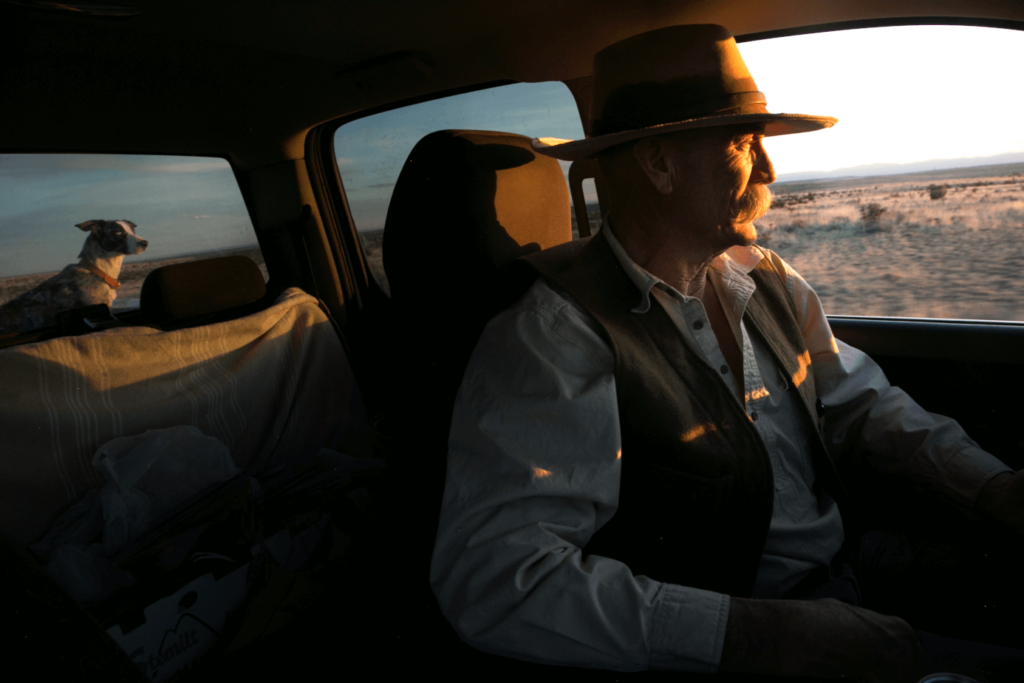
As he hovered in a helicopter over the Chico Basin Ranch in Colorado, photographer Alec Jacobson scanned the horizon for a barrier marking the end of the sprawling landscape. “Even in a helicopter, I couldn’t see the edge,” he said. “Just open prairie land. It looked spectacular.” The 87,000-acre ranch, one of the largest in the country, is managed by Duke Phillips (right) and members of his family. As they try to preserve their heritage ranching business, testing an ambitious style of management, Jacobson has been documenting the story in photographs, an experience he discusses here.—Katie Daniels
Duke Phillips’s dad managed a ranch for the Rockefellers in Venezuela, and Duke grew up on a ranch in Mexico. His dad told him, ‘You need to go to college, and you’re not allowed to study ranching.’ So he went and got a creative-writing degree, but then he got drawn back into ranching.
When he won the lease on the Chico Basin Ranch, Duke didn’t have a lot of cash or even really a herd of cattle. He showed up with a stock trailer, a welder, and a couple of horses. He needed to figure out how to make the ranch profitable, but he also wanted to build up a cohesive, diversified business that would do well in the modern economy.
People in cities think this cowboy way of life is already dead. But the Phillips family is very intentionally cultivating a particular position. They practice serious ranching, and they’re doing it on a large scale. But they’re also bringing writers and people from cities out to the ranch and helping them appreciate heritage ranching, while also working with neighboring ranchers to figure out models for the future of ranching. Right now in America, we see a really politically divisive climate, and one of the reasons is the divide between people who live in cities and people who don’t, and those distinctly different lived experiences. The Phillips family has the ability to sit in between those two camps of people and help them talk to each other.

